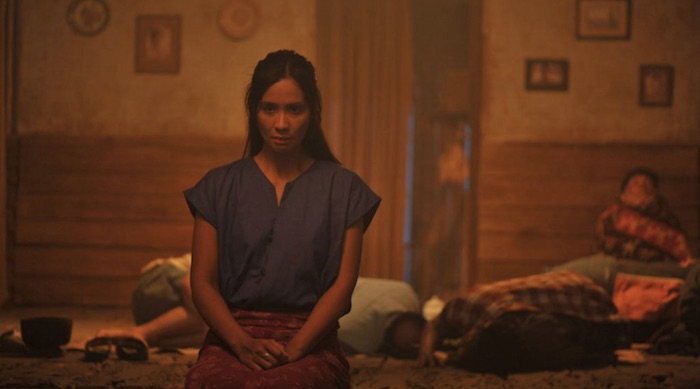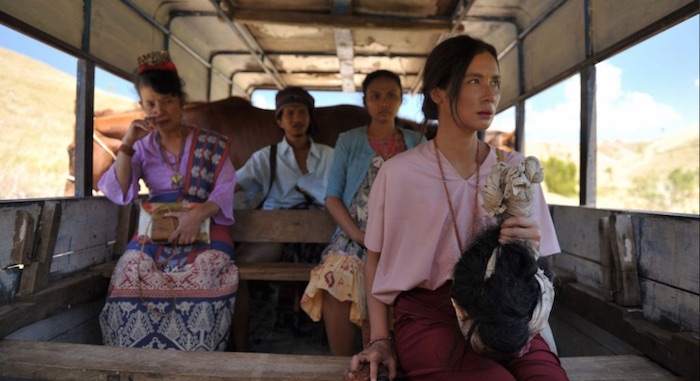THE CANNIBAL CLUB
 Tuesday, January 30, 2018 at 6:06PM
Tuesday, January 30, 2018 at 6:06PM Stars: Ana Luiza Rios, Tavinho Teixera, Ze Maria, Pedro Domingues, Rodrigo Capistrano and Galba Noguera.
Writer/Director: Guto Parente.
Reviewed at Pathé 4 Cinema, Sunday January 28 as part of the Rotterdämmerung section at the 2018 International Film Festival Rotterdam (IFFR)
Rating: 4/5

A South American genre film about cannibalism lands world cinema’s sharpest counter punch to wealthy global privilege in auteur Guto Parente’s seventh and arguably best feature, The Cannibal Club. Set against the golden sun and sparkling sand of the gated-community and private-beach life of upscale Brazil, the prolific 34 year-old filmmaker envisions a modern but no less decadent and disturbed version of Caligula’s court, with added people-eating.
Parente takes aim at the culture of the grotesquely well-off, one that affords them the luxury of having the poor to exploit. In the case of Otavio (Tavinho Teixera) and his young trophy wife Gilda (Ana Luiza Rios), this extends to the hiring, slaughtering and devouring of servants who come to their coastal mansion in the hope of steady work. In a frankly remarkable opening salvo of images both sexually frank and gruesomely detailed, the stereotypical ‘pool boy’ flirts with a willing Gilda, only to be disposed of mid-coitus by Otavio, fileted and served as the evening meal.
When Gilda witnesses the most influential flesh-eater of them all, cold-blooded capitalist/nationalist powerbroker Borges (Pedro Domingues) in a particularly compromising situation, she and Otavio soon find that their cocktail-sipping peers will willingly turn against their own kind to protect their lofty, self-entitled secret status. Parente’s rich are not the endowment-to-the-arts kind of charity patrons that western media often venerates; the wealthy of Brazil are lecherous, murderous pack animals who turn on the compromised, fearful that any weakness threatens their existence.

When not indulging in his own pleasures of the flesh, Otavio partakes of some ‘men’s only’ business as part of the titular soirée, who gather to witness acts that reinforce just how prevalent and heartless the exploitation of the poor underclass has truly become. Parente’s other prime target is the innately pathetic nature of rich society’s Alpha Male, who posture and rankle but mostly shrivel and cower when the patriarchy is threatened. In Ana Luiza Rios’ fearless performance as Gilda, the director identifies the feminine archetype that must navigate the duality of their existence; at once, feigning compliance to fragile male egos while always charting their own destiny, however bloodstained and immoral it may be.
The Cannibal Club courses with a savagely scornful humour; if few moments prove laugh-out-loud hilarious (the general mood is too unrelentingly tense and often unpleasant for mirthful outbursts), Parente has nevertheless crafted a sly, stylish skewering of affluent disconnect. If the rich feeding wilfully off the working class is not exactly a unique notion, the theme has rarely been handled with such dark-hearted gleeful menace or strident intellect.
 Film Festival,
Film Festival,  IFFR,
IFFR,  International Film,
International Film,  horror
horror 



